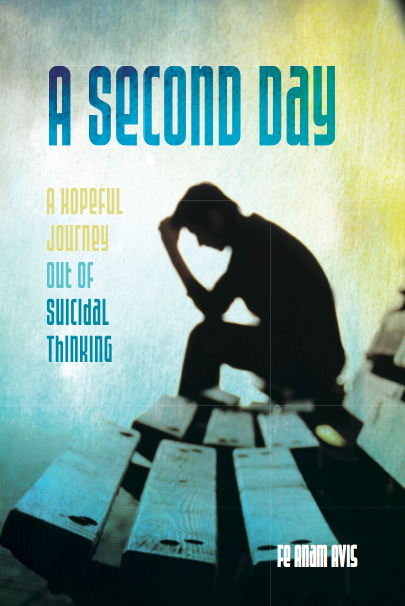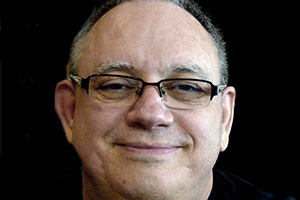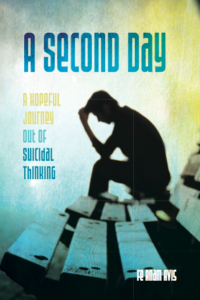
[dropcap type=”4″]I[/dropcap] am having a crisis of literature. For the second month in a row, I am reviewing a book by a non-Catholic pastor. This one, “A Second Day: a Hopeful Journey Out of Suicidal Thinking,” by Fe Anam Avis.

We learned last month that our non-Catholic Christian brothers and sisters must have a grain of truth if their beliefs are centered in the reality that Christ is Lord. The truth, here, is that suicidal thinking affects Catholics too, and is something we should not shy away from.
Pastor Avis states that he started out to write this book without references to Scripture but that the spiritual aspects of suicidal thinking were too great to not do so.
Immediately this makes me suspicious.
On the first hand, being unsure that Scripture has a point for every aspect of our lives is difficult for Catholics to understand. On the second hand, this tendency is toward what we call “humanism,” which essentially means that the Lord is not needed in the discussion of human beings and their problems. We Catholics find this difficult to understand as well. Fortunately, Avis did include some references.
The Second Day, Avis writes, is that time of life after hopelessness leads a person to the first thoughts of suicide. The First Day, thus, is the life before such an event occurs. Still, we must understand that sometimes brain chemistry and an imbalance of serotonin can lead us to such thoughts. We must also accept that sometimes the presence of a solid, supportive, faith-based, loving family or community can stay that downward spiral and help us avoid suicidal thinking.
Consider Honduras, Avis writes, a person born and growing up there is five times less likely to commit suicide than a person born in the United States. In Honduras, the family is everything. What is economic wealth to suicide?
The downward spiral of suicidal thinking is exacerbated by the isolation caused by the social stigma attached to it. We might be tempted to think that suicide should be no more of a problem than abortion, but the guilt and shame of it isolate us more because in the postmodern world, suicide is a failure and abortion is merely a choice.
[quote_box_left]
A Second Day: A Hopeful Journey Out of Suicidal Thinking
Publisher:: Magi press
Author: Fe Anam Avis
Published: 2nd edition (2014)
Price: $12
Length: 160 pages
ISBN: 978-0692221822
Order: Amazon.com
[/quote_box_left]
What we can do is recognize the reality of suicidal thinking and understand that aside from brain chemistry, the culture of death that permeates postmodern society with its rabid relativizing of values and its pathological secularization, is the perfect environment for such thinking.
Avis prances around the importance of accepting ourselves and those around us — especially those in need or those marginalized — as being created by God in His image and that our dignity as human beings is derived from the nature of imago dei, the image of God.
Pastor Avis writes about the speed at which difficulty in life can result in the Second Day. He uses the Viking god, Loki, to illustrate how quickly life can be disrupted. We Catholics tend to lean toward Satan in this equation because it helps us focus on the tension between good and evil.
The pastor invents the term, “othersoul,” as someone who can stand with the suicidal thinker, not simply add to the isolation. Avis writes, “becoming a new creation is way overrated. Preachers homilize as if becoming a new creation is the next best thing to Velcro. Come on! The last thing in the world people want you to do is really change.” And yet to Catholics, this is the whole nature of the willful relationship between the sinner and Christ. When Avis writes about the othersoul as the one who accepts the brokenness of suicidal thinking, he’s actually writing about each one of us in the Church, at least the one I belong to.
Finally, Pastor Avis defines a Second Day spirituality that helps those with suicidal thoughts to cope and to commune with God, though not in the Eucharistic sense.
Avis writes, “stop trying to ascend to heaven with a placid smile and lit face. You’ll only arrive to discover that God is not there. God has descended into the earth. Fall into your body. There is more of God in your dancing and in your fast.”
I might be accused of taking this literally, but Avis is also a physicist and not a poet. I’d be missing God in heaven and concerned about God in the earth. Still, the grain of truth in this book is that suicidal thinking IS an urgent issue, especially in this culture of death. The Church is the answer; professionals with like-mindedness can help us back away from the abyss. Jesus can save us.
Just don’t wait for someone to be in trouble, especially if that someone is you.






